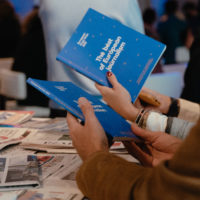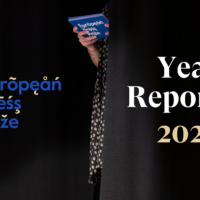Meet our new PrepCom members
Our entry period is in full swing and there is just about two weeks left to enter work for the 2025 edition of the European Press Prize. Once the entry period is over, our Preparatory Committee’s work is just beginning: reading and judging all projects that were sent in this year.
This year, we are delighted to include four new members in our panel. To introduce them to our audience, we have asked them a few questions about their work. They also share convincing reasons why you should enter work for the Prize.
Agnieszka Wądołowska, Deputy Editor-in-Chief of Notes from Poland
Read her full bio here.
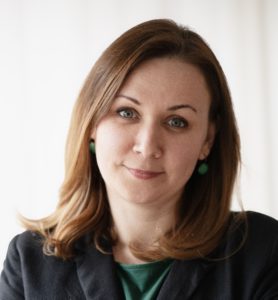 From your experience at Notes From Poland, why is it important to bring national stories about a country to a broader international audience?
From your experience at Notes From Poland, why is it important to bring national stories about a country to a broader international audience?
Notes from Poland’s mission from day one has been to help the world understand Poland with our English-language reporting on the country that is reliable and independent of politicized and commercial narratives. Notes from Poland seeks to fill in gaps by offering comprehensive coverage of Polish current affairs, society, culture and history, as well as regular analysis and opinion from a wide range of expert authors. Sharing these national stories with an international audience helps to amplify facts and voices that might otherwise go unnoticed while also breaking stereotypes and misconceptions.
How does that translate into the value of bringing national stories to an international audience in general? Well, in an interconnected, globalised world, no human being is an island. We share more common challenges than we often realise. Not only polarisation, climate change, and pandemics have an international impact. Sharing national stories connects these challenges to regional and global audiences building bridges and a more informed, compassionate, and connected world.
Why would you encourage journalists to enter their work?
As journalists and reporters, we often work in heavily underfunded, under-resourced, fast-paced environments. The European Press Prize offers an amazing opportunity for those who do quality, fact-based journalism to be recognised and prized for their vital work and sheds a spotlight on the public-serving stories that require time, empathy, and investigative skills, stories that shouldn’t remain untold.
Juliette Garside, deputy investigations editor for the Guardian
Read her full bio here.
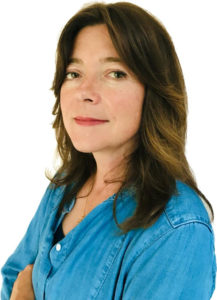
You won the European Press Prize in 2023. What was the impact for your project/team after you won the award?
Joy! The recognition is a boost to the team and encourages us to keep going.
Why would you encourage journalists to enter their work?
Just Vervaart, investigative journalist specialising in data-driven research at Omroep Gelderland
Read his full bio here.

Can you share an example of an innovative project you contributed to for a regional media that had an impact on the national level?
The regional broadcasters in the Netherlands have jointly conducted a study into the availability of ATMs. The company responsible for the ATMs did not make these figures public. By collecting data ourselves, we were able to demonstrate that they were not meeting their performance obligations. National media picked up the story. In this way, we got the subject on the agenda and ensured that the performance figures are now public so that everyone can check whether things are improving and call them to account.
Why would you encourage journalists to enter their work?
It is a unique opportunity to bring innovative work to the attention of a European audience of journalists and inspire them to undertake similar research.
Tanja Stelzer, award-winning reporter writing for DIE ZEIT
Read her full bio here.
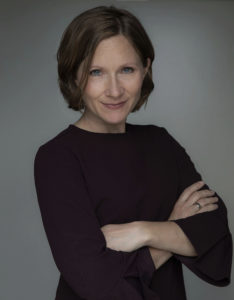
As someone who won several journalistic awards with your work, what effect did this have on your further career and experience as a journalist?
It is, for sure, flattering to win a journalistic award, and it brings you together with people you might not have connected with otherwise. My own awards might not have directly led to career steps but I feel that it is quite motivating when you get a prize for a piece that matters to you. We shouldn’t have a prize in our head when we do our work – we should simply do it for our audience. But when it turns out that a good piece you did is awarded, this is a sign to your editor that paying all those expensive research trips and providing the necessary resources is worthwhile. It will encourage you and others to do more of that – more of the kind of journalism that will help people to understand this complicated world.
Why would you encourage journalists to enter their work?
I feel that in a time when journalism is under pressure, wars dominate global events, and democratic values are being challenged, it’s crucial to highlight outstanding journalism, to show what is possible when excellent people have excellent possibilities to do their important work. It is also crucial to foster an international understanding of what happens in the world. Submitting your work provides an opportunity to connect with talented reporters from different countries, gain new perspectives, and perhaps refine your own approach. These connections could also lay the groundwork for future projects.
Veronika Munk, award-winning journalist and media manager working for Slovakia’s Denník N.
Read her full bio here.
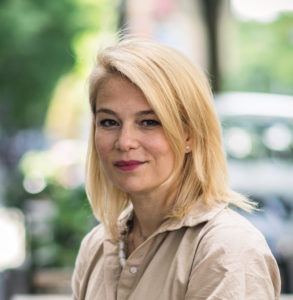
How can innovations in media help to get people more engaged with the media?
I am a great believer in repackaging content. Different age- and social groups consume media differently. It’s a cliché, but it’s true that younger people prefer audiovisual formats and older people prefer texts. A long article can be turned into a podcast, a social media video, an infographic, and so on. Diversity is the right approach: newsletter, newsfeed, longform article, podcast platforms, social media – all channels should be used. At the same time, the often over-dominance of large platforms means that any innovation that reaches readers directly can contribute to the sustainability of quality media and to the delivery of relevant and demanding stories of public interest to as many people as possible. It also gives a voice to those who often do not have a strong voice in the public sphere.
Why would you encourage journalists to enter their work?
There are several reasons to apply for the European Press Prize, the most important of which, in my opinion, is that it can bring important stories to an even wider audience and international attention. Also, since it is one of the most prestigious awards in journalism, it is a very spectacular form of recognition of excellence, so being shortlisted, or even winning the award, opens countless professional doors and can be a great source of personal development, self-confidence booster and inspiration for colleagues. Also, it gives a wider focus and trust on quality journalism, which is more important than ever.



